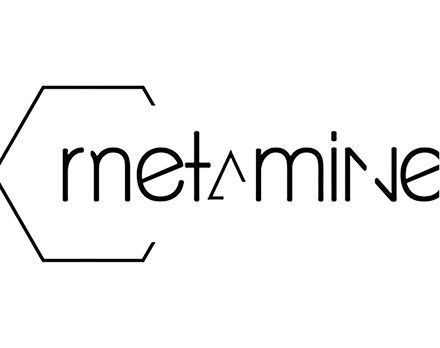
Music C•A•R•E•S - Engage in Live Events Sustainably
About Music C•A•R•E•S
- Create environmental, social and economic awareness
- Apply sustainable business practices
- Reduce carbon footprint - less waste
- Engage and inspire music fans for sustainability
- Safeguard healthy conditions for live music
At the beginning of the 1990s, Mauricio Lizarazo Prada experienced his first major concert as a teenager - Paul McCartney - and was deeply impressed: vegetarian offerings and a drastic, cinematic display of animal testing on stage. On the one hand, this was the first time he came into contact with these issues, and on the other, a fundamental idea was imprinted on his mind: Culture, and music events in particular, can be used to create awareness and help shape social transformation with selected messages.
The idea of designing a kind of digital platform for players in the event industry that could be used to easily plan more sustainable music events came to Mauricio during his many years working as tour management service Pachamama Culture. Such a tool should make it possible to avoid or at least reduce emissions in the planning and production of events with little effort and make it clear that the cost-benefit ratio of music events can be optimized. From the outset, the aim was to understand sustainability as a three-dimensional construct (ecological, economic and social).
In spring 2022, fueled by the pandemic situation, the project became concrete: Mauricio, with a university background in business administration and music business, brought Josephine Doepner (BA Social Sciences, responsible for general project organization) and Alicia Pfeifer (Communications Manager; responsible for external communications and social media) into the team. This interdisciplinary collaboration was complemented by a similar background of extensive experience in the - largely subcultural - event scene in and around Berlin, be it in a club context or at festivals. Among other things, these were experienced as places of experimentation and collectivity.
These experiences should be bundled as much as possible, especially with regard to the implementation of individual sustainable approaches: In the form of an app, which would combine a CO₂ calculator tailored to event areas with a directory for best-practice providers and serve sustainable networking. We quickly agreed that the focus on CO₂ should not distract from other environmental pollution and destruction and from other, very specific areas of knowledge - such as resource management, biodiversity and social fairness. Our shared perspective is that neither CO₂ offsetting nor 'greenwashing' or, at worst, greenwashing will do justice to the status quo.

CO₂ calculation and sustainability
There is also no claim to completeness or scientific perfection with regard to the CO₂ calculation, but rather a hands-on mentality to transfer existing knowledge into practice as quickly as possible and make it effectively usable for users of the app. We would like to take this opportunity to thank the graphic designer Hebert Asprilla Cardenas, who actively supported us with the UX design. The focus is on the proactive involvement of music stakeholders. With the help of the supplier directory, the aim is to promote intensified cooperation with local/regional, small and medium-sized suppliers (including those from outside the industry!).
The aim is to generate awareness and sensitivity for the topic of sustainability on the one hand and to offer the most concrete support for action possible on the other: By incorporating realistic criteria that can be implemented quickly and, at best, across the board, the aim is to achieve a leverage effect towards the immediate reduction of as many emissions as possible. Smaller, non-commercially run but socially valuable venues, for example, obviously cannot be expected to overhaul their entire infrastructure with sustainable but expensive innovations. What is needed here are sponsors or targeted subsidies from politicians and structural starting points, such as the training of event professionals with sustainable expertise, legal framework conditions that do not simply mean regulation and prohibition but allow and enable new, creative ways of finding solutions.
The three dimensions of sustainability
The three dimensions - ecological, economic and social - are inseparable in practice and must always be considered together. They cannot be offset against each other.
Decisions in event planning are therefore also a question of mindset: organizers, venue owners, bookers and the audience need to be prepared to accept higher expenses or greater organizational effort in the short term, in the knowledge that these investments make sense in the long term. Investment rather than purely consumer behavior is crucial here. We know that the app does not offer an all-encompassing solution and that linear management needs to be fundamentally rethought. Even in the initial discussions and decisions surrounding the project, it became clear that contradictions and complexity are not uncommon in this process.
In this context, we would also like to take a closer look at the central social dimension of sustainability. Two levels of social sustainability are important: firstly, working conditions and consumption structures. Secondly, the cultural industry has the potential to motivate audiences and inspire them to actively reflect. Changes to event operations can be perceived as a restriction and meet with resistance. It is therefore crucial to emphasize the opportunities and added value, i.e. to think positively about change and implement it constructively.
In other words, the most conscious decisions possible are needed in which sufficiency serves as a guiding model and progressive, social potential is focused on. We therefore also advocate holding events that are smaller, more local, less elaborate and less frequent.
The first realization of the concept in the form of a pilot version was made possible by funding from the Initiative Musik. The pilot version initially focused on a CO₂ calculator, which was created in collaboration with environmental scientist Susanne Köhler from myclimate. In addition to the environmental science perspective, the Cradle to Cradle impact matrix also served as a guide (source as of 11.09.23).
A complete analysis of “all” areas and criteria of events is not entirely feasible due to indirect emissions, such as those caused by complex supply chains. However, we have consistently used emission factors for the calculation that reflect an average or exemplary life cycle of activities or products as closely as possible. More background information on the calculations can also be found in our transparency statement.
The pilot version offers:
- a CO₂ calculator for the exemplary planning of a single show
- four areas of event planning: mobility, location, catering and merch
- a supplier directory with a few exemplary and “hand-selected” companies, institutions and people
Finally, it should be noted that selected areas and criteria as well as the results displayed are always dependent on individual decisions, available data, data gaps and reference values. All information is therefore subject to uncertainty. Depending on the type of event, it also depends on where the priorities for selecting sustainable measures (should) lie.
The app is recommended for use before, during and after event planning. Ideally, it should be used repeatedly, for example for series of events, so that data and experience can be collected and goals can be set and evaluated. In addition to the calculations and information on the areas in which more sustainable action can be taken and which important factors need to be considered, the targeted search for suitable providers is key.

Current developments of the pilot version
The approval of European LIVEMX funding has enabled us to continue working on Music C•A•R•E•S since November 2024. Several developments are now pending for Music C•A•R•E•S 2.0:
- Improvement of user-friendliness, accessibility and transparency (derivation of calculations and decisions on the various areas and criteria)
- Development of a user survey on social sustainability for a more differentiated consideration of the cost-benefit ratio of planned music events
- Development of guidelines for the list of providers, which will then be significantly expanded
- Developing a concept for how the app can continue to be offered free of charge or as cheaply as possible in the future
In the longer term, we are also planning to use our tool to plan tours and festivals. For now, we hope you enjoy discovering and trying it out and that Music C•A•R•E•S can help you until “think global, act local” becomes a reality!




